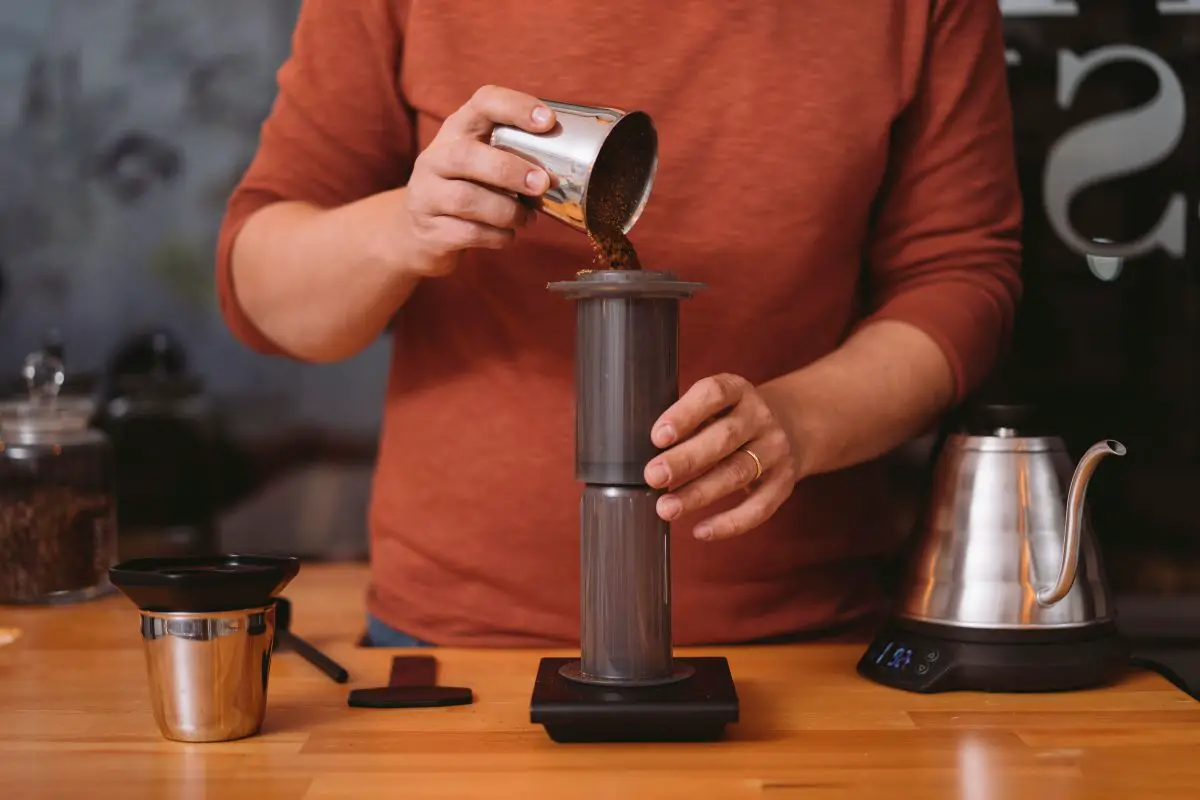The simple answer to “Why don’t you steep coffee?” is that steeping can result in over-extraction, leading to a bitter and unpleasant taste. But to truly appreciate this response, we need to dive deeper into the fascinating world of coffee extraction.

Understanding Coffee Extraction
Coffee extraction is a delicate dance between the water and the coffee grounds. Too quick and you’ll be left with a weak, under-extracted brew. Too slow, and you’re flirting with over-extraction.
When coffee is steeped—allowed to sit in hot water for a prolonged period—the chances of over-extraction rise dramatically. This is because the water continues to pull flavors from the coffee grounds, even after the desirable ones have been extracted.
The Issue with Over-Extraction
When coffee is over-extracted, it extracts the undesirable bitter and harsh flavors that ruin the balance of your cup. The pleasant notes of fruits, spices, chocolate, or whatever treasures your specific bean holds get lost in a sea of overpowering bitterness. That’s why in conventional brewing methods, contact time between water and coffee is controlled to prevent over-extraction.
Diverse Brewing Methods
While steeping isn’t the go-to method for brewing coffee, there are diverse brewing methods that apply the principle of steeping but with controlled extraction.
French Press
The French Press method involves steeping coffee grounds in hot water. However, this method calls for a specific brewing time (usually around 4 minutes) to avoid over-extraction. Once the brewing time is up, a plunger is used to separate the grounds from the liquid, thereby stopping the extraction process.
AeroPress
AeroPress, too, employs a form of steeping. A compact, efficient brewing device, AeroPress combines immersion brewing and pressure to yield a clean and robust cup of coffee. The crucial factor here is that the contact time is carefully managed, and the plunger instantly separates the coffee grounds from the water.
Additional Tips for Coffee Brewing
Remember, the quality of your cup of coffee doesn’t solely depend on the brewing method. Here are a few extra tips for a superior coffee experience:
- Coffee Bean Quality: Always use high-quality, fresh coffee beans.
- Grind Size: Ensure your coffee is ground to the right size for your chosen brewing method. For instance, French press requires a coarse grind, while AeroPress thrives on a medium to fine grind.
- Water Quality: Use fresh, clean water. Remember, coffee is 98% water, so its quality matters!
- Correct Ratio: Follow the correct coffee-to-water ratio. A general rule is 1:15—1 part coffee to 15 parts water.
Your Coffee Challenge
Now that you’ve learned why we don’t usually steep coffee, we invite you to put this knowledge to the test. Brew a cup using your preferred method and consciously focus on preventing over-extraction. Notice the difference in flavor. Feel free to share your experiences and coffee stories in the comments below. We’d love to hear how your coffee adventure is brewing!
In the end, remember that coffee is a personal experience. The “best” method is the one that brews the cup you most enjoy. Happy brewing!
Related article: